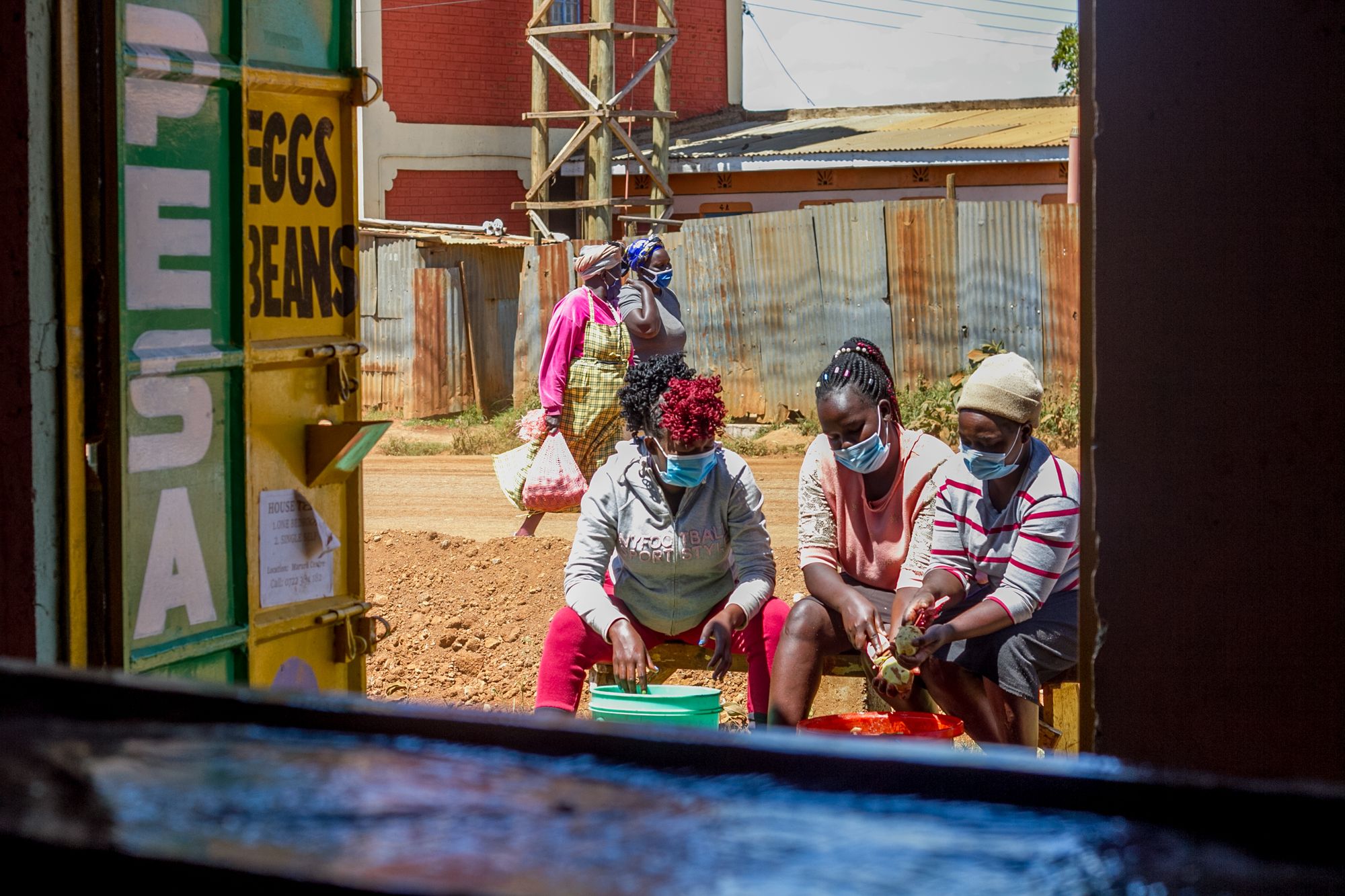
A Spirit of Communion
Khalayi Emily Wekulo describes life as a pregnant teacher, parent and church member during the pandemic
As a teacher in Kenya, commuting to work in public transport has been nothing short of dramatic. A sneeze or cough is enough to provoke passengers to jump out of moving vehicles as though they are on fire. Commuters without face masks often flee through the windows at the first sighting of police officers, and sometimes it’s the bus drivers who scram to avoid paying fines for breaking health and safety protocols.
Another fear that keeps me awake is access to healthcare during birth
At school, students giggle at my bulging, pregnant belly and masked face but it’s no laughing matter since many students and colleagues disregard social distancing and carry on without face masks. Some claim that when they wash hands, they get hungry because around here hand washing is associated with food. Worst of all, some think the pandemic is a scam, and with sinks and sanitisers in short supply, I worry it’s only a matter of time the virus strikes.
Another fear that keeps me awake is access to healthcare during birth or potential complications from my pregnancy. Doctors and health workers had been threatening strike action to protest poor compensation and the lack of personal protective equipment and medical cover, a frightening scenario that increasingly scares me as my due date draws closer.
Home services have cemented our family bond.

Since I am classified vulnerable to Covid19, I’ve avoided church services. My pastors, however, keep in touch by organizing services online for those most susceptible to the virus. As a family, we have learned to worship together as home, with my husband acting as the priest on most occasions. My six-year-old daughter terribly misses Sunday school but understands the risks of congregating in public at the moment. On the positive side, the home services have cemented our family bond.
Through my church, I have grown to appreciate the spirit of communion during the pandemic.
With the help of church elders and a few donors, my husband conducted seminars on alternative business routes that unemployed people can pursue and offered training on poultry and tailoring. My church has also provided business loans to congregants, contributed to buy sanitary towels for girls from vulnerable families, and I’ve organised community based outreaches on covid-19 and teen pregnancy, which sadly became rampant with school closures.
Through my church, I have grown to appreciate the spirit of communion during the pandemic. Donating face masks might seem insignificant until one realises many have had to choose between buying a piece of fabric and a plate of food, a dilemma that has left many exposed to the virus. A community that looks out for others is the true definition of love, especially in these dark times.

